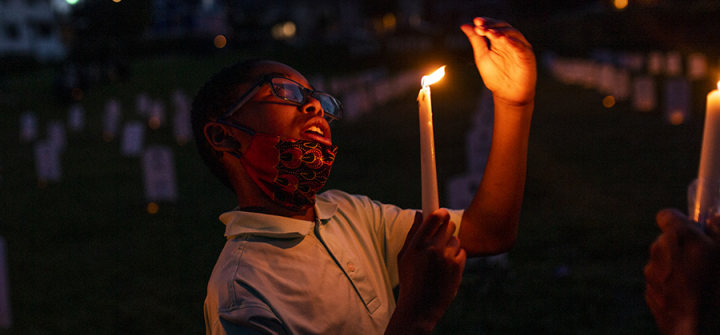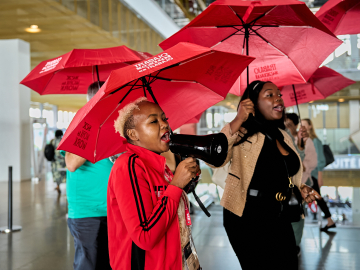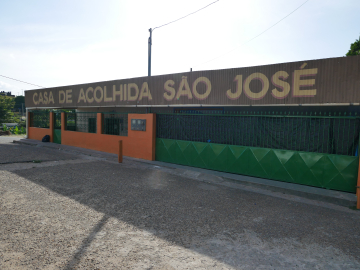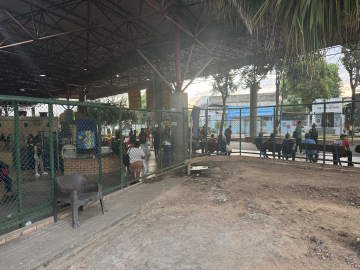The Racism Pandemic: Thoughts from an African Student
The senseless killings of George Floyd and so many others have sparked not only outrage in me but bitter memories.
George Floyd’s death wasn’t just the evil action of 4 police officers, but the projection of a society without values. Watching the video of his final moments—crying for his mother and begging to breathe with a policeman’s knee on his neck—made me revisit the trauma of my country’s civil wars. It took me back to a time when family and friends were humiliated, tortured, and murdered.
Born and raised in Liberia, I am a living testimony of what happens when a society breaks down and sacrifices human rights. My life was drastically altered by 2 episodes of civil war in 1990-1996 and 2003. The worst time was the 2003 civil war. My uncles, aunties, cousin, and childhood friends were killed in my presence. It was horrifying, especially seeing the brutality against men, women, and children alike. Many times, I cried. It has remained mentally exhausting and traumatizing for me.
The story of my life has pushed me to study public health so I could fight for human rights and for victims of violence, injustice, oppression, and war. I seek to save millions of lives because social justice is a public health solution.
But here, in a country supposedly endowed with the rights to life, liberty, and the pursuit of happiness, regardless of race, I have been confronted by heinous atrocities that have been hard to stomach. The police ought to serve and protect; instead, they are inflicting pain on people, causing lifelong trauma for entire families and communities.
Each time, the police kill someone it triggers fresh agonies for people who are trying to heal. The killing of George Floyd has also provoked action. Many voices have been raised against the structural racism and injustice that appear to be underlying factors in the US.
Unfortunately, these scourges are not unique to the US. I know this firsthand. Before I came to the US, I lived in the United Kingdom and experienced extreme racism. Seeing the protests in the UK due to the inhuman killing of Black men and women in the “Land of the Free” serves as a sobering reminder that the UK has its problems with systemic racism. Racism is a worldwide reality, hence, mushrooming of protest in dozens of countries.
I have chosen not to be silent but to add my voice to that of others seeking to end racism and end the disproportionate suffering of people in lower-income settings and communities of color. Slavery and segregation may date back centuries, but they are still much alive. We want to see justice served, and justice is represented by a fair trial of these police officers. They murdered the man on a big screen, and the world saw it. There might be other reasons why he was killed, but systemic racism appears on the list of all these hypotheses.
Many international students of African descent here in the US have always viewed America as a land of opportunities and the epitome of justice and equality. The video depicting how a police officer for 8 minutes and 46 seconds squeezing the life out of Floyd's body has been emotionally traumatic. It sparked frustration and fear among my fellow African students.
For those of us studying public health, the killing of George Floyd contradicts the core value and principle of our training. We have been taught to respect human dignity, promote health, and save millions of lives at a time.
The spark has been ignited, and silence is no longer an option. The killings of Black men and women are repugnant and must be stopped. There have been too many: George Floyds, Freddie Grays, Philando Castiles, Breonna Taylors, Amaud Arberys, Trayvon Martins—the list is endless. People everywhere must stand up, speak out against the perpetuation of these senseless acts, and demand a change. A change of policies. A change in policing. A change in legislation. A change in engagement. A change in bystander mentality. A change in politics. A change in lip-service. A change in business as usual.
This should not be another missed opportunity to correct the errors of yesterday. Let us all confront these errors finally and achieve the changes we seek.
Justice must be served for all in every country.
Ambulai Johnson is a graduate student and president of the African Public Health Network of the Johns Hopkins Bloomberg School of Public Health. He is passionate about using evidence-based research to develop policies that can improve health and well-being in populations.
Join the tens of thousands of subscribers who rely on Global Health NOW summaries and exclusive articles for the latest public health news. Sign up for our free weekday newsletter, and please share the link with friends and colleagues: https://www.globalhealthnow.org/subscribe
People in Minneapolis attend a candlelight vigil in memory of George Floyd and others on June 7, 2020. Image: Stephen Maturen/Getty Images




